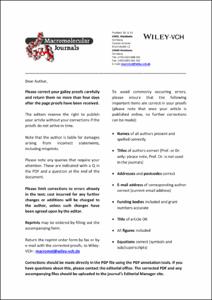Development of a self-assembled peptide/methylcellulose-based bioink for 3D bioprinting

Visualitza/Obre
Cita com:
hdl:2117/177436
Tipus de documentArticle
Data publicació2019-11-13
Condicions d'accésAccés obert
Llevat que s'hi indiqui el contrari, els
continguts d'aquesta obra estan subjectes a la llicència de Creative Commons
:
Reconeixement-NoComercial-SenseObraDerivada 3.0 Espanya
Abstract
The introduction of 3D bioprinting to fabricate living constructs with tailored architecture has provided a new paradigm for biofabrication, with the potential to overcome several drawbacks of conventional scaffold-based tissue regeneration strategies. Hydrogel-based materials are suitable candidates regarding cell biocompatibility but often display poor mechanical properties. Self-assembling peptides are a promising source of biomaterials to be used as 3D scaffolds based on their similarity to extracellular matrices (structurally and mechanically). In this study, an advanced bioink for biofabrication is presented based on the optimization of a RAD16-I-based biomaterial. The strategy followed to build 3D predefined structures by 3D printing is based on an enhancement of bioink viscosity by adding methylcellulose (MC) to a RAD16-I solution. The resultant constructs display high shape fidelity and stability and embedded human mesenchymal stem cells present high viability after 7 days of culture. Moreover, cells are also able to differentiate to the adipogenic lineage, suggesting the suitability of this novel biomaterial for soft tissue engineering applications.
CitacióCofiño, C. [et al.]. Development of a self-assembled peptide/methylcellulose-based bioink for 3D bioprinting. "Macromolecular materials and engineering", 13 Novembre 2019, vol. 304, núm. 11, p. 1900353:1-1900353:9.
ISSN1438-7492
Versió de l'editorhttps://onlinelibrary.wiley.com/doi/abs/10.1002/mame.201900353
| Fitxers | Descripció | Mida | Format | Visualitza |
|---|---|---|---|---|
| mame201900353.pdf | 1,943Mb | Visualitza/Obre |


